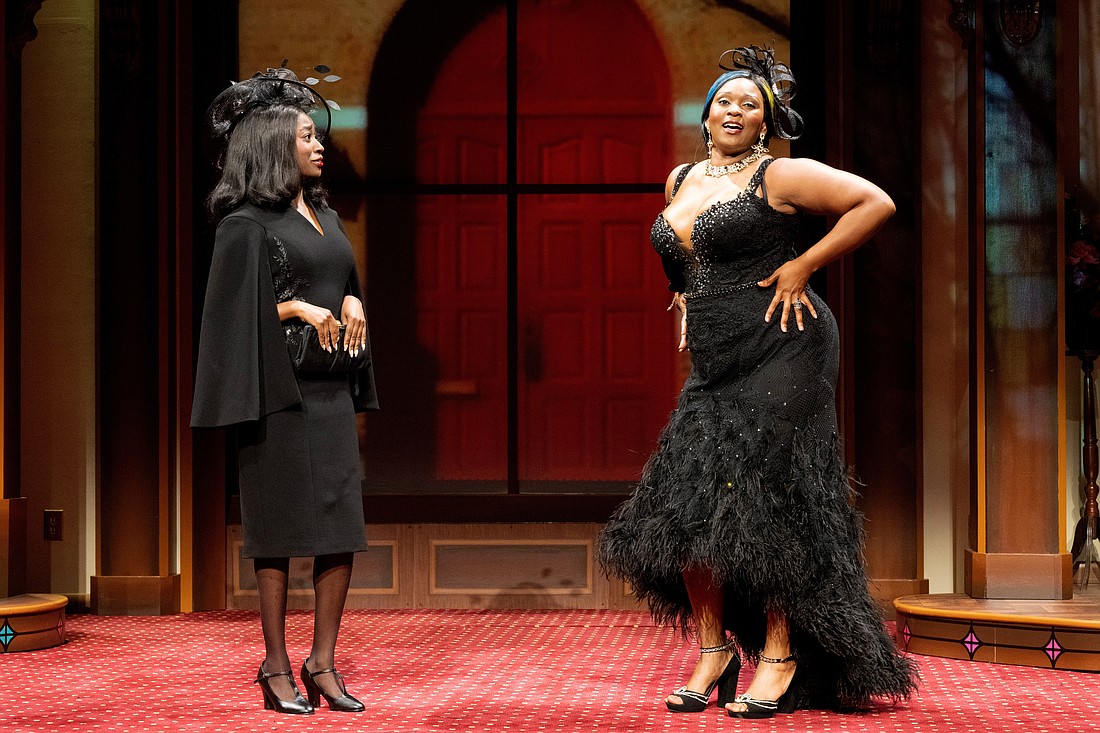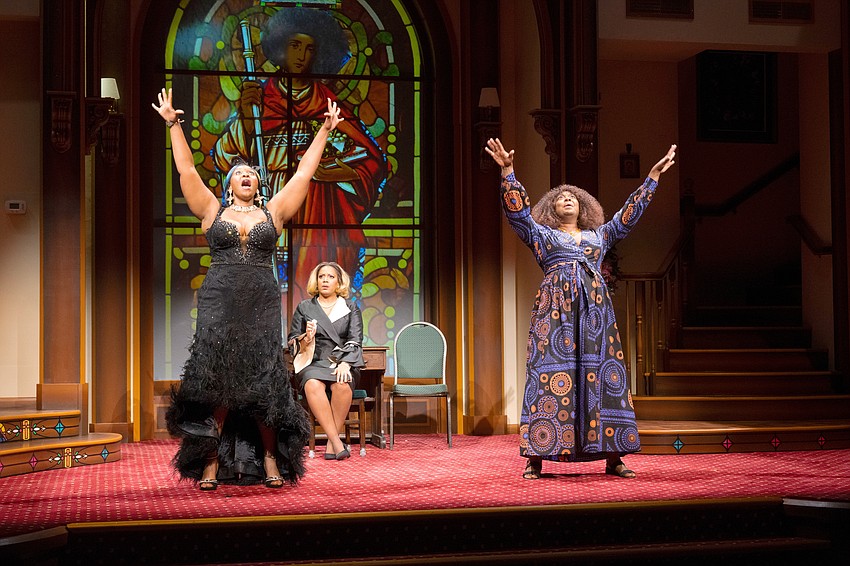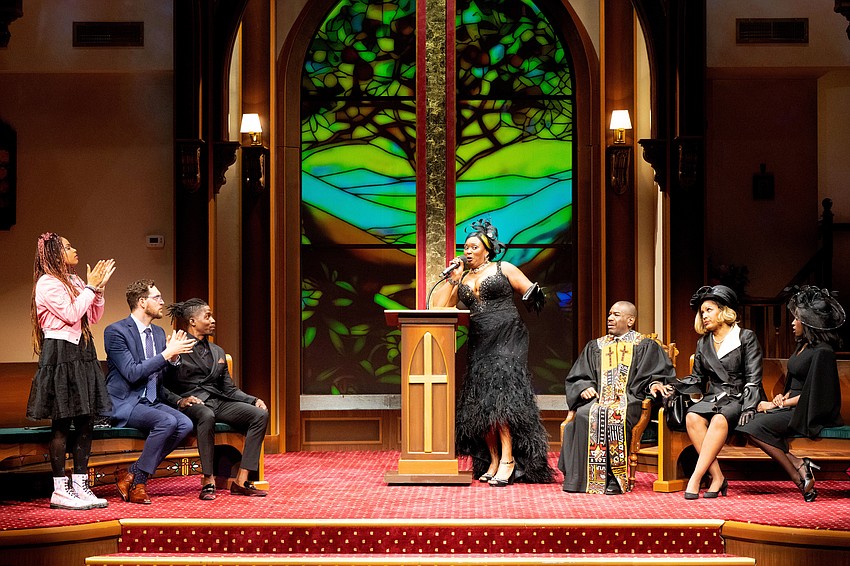- July 26, 2024
-
-
Loading

Loading

This story has been updated to reflect that Candice McKoy played Brianna.
Asolo Repertory Theatre’s production of Douglas Lyons’ “Chicken & Biscuits” opens with a celebration of life — which is to say, it opens with a funeral.
The late Bernard Jenkins is the life being celebrated. He was the pastor of St. Luke’s Church, a Black fellowship in New Haven, Connecticut. He was also the patriarch of the Jenkins family. They all come together for his funeral — eventually. Until then, they’re constantly on the verge of falling apart.
The late Pastor Jenkins is survived by two daughters: Beverly (Jasmine Rush) and Baneatta (Tracy Conyer Lee). They’re as different as night and day.
Beverly’s out there: a single mom who speaks her mind and celebrates her body. Her former fiancee just dumped her. Now she’s shopping for a new one — and figures a funeral’s as good a place as any. Beverly wears a push-up bra and dress with killer cleavage to seal the deal.
Whatever she is, her sister isn’t. Baneatta is the archetypal church lady: prim, proper, judgmental and severe. She even married the pastor who stepped into Bernard’s shoes — Reginald (La Shawn Banks). Banks’ portrayal of a preacher is spot-on. When he says “I’m going to share a few words,” eyeballs roll. His family knows there’ll be more than a few. Reginald often runs interference on his judgmental wife.

Baneatta’s son, Kenny (Ernest Bentley), is gay. He’s officially out, but he loses all confidence around his mother and sister. Baneatta looks down her nose at her son’s “lifestyle” — and refuses to remember his partner’s name. His sister Simone simply calls them “thespians.” (Because they’re both actors. Get it?) Kenny thinks she’s homophobic, too — but there’s something deeper at work.
Beverly’s daughter, La’Trice (Dreaa Kay Baudy), is an aspiring, almost-16 rapper with a cellphone in her hand and self-promotion in her mind. She loves her cousin Kenny for who he is. His partner, Logan (Dean Linnard), is white, Jewish and gay — and totally clueless to the traditions of a Black funeral. As to Candice McKoy's Brianna, let’s just say she’s the wild card.
The Asolo Rep actors are all first-rate. Unlike the family, they do come together — and click as a playful ensemble. Lyons’ script gives them plenty to play with. The Jenkins brood stews with secrets, lies, issues, wounds, feuds and grudges. Director Bianca LaVerne Jones puts it on a low heat and lets the comedy simmer.
Antonio Troy Ferron’s realistic set is a church interior, but it doubles for other locations. He shows you the world of this family. His loving details makes that world seem very real. Rasean Davonte Johnson’s front and rear projections are the icing on the illusory cake. His stained glass windows look utterly real — but constantly change. Dede Ayite’s costumes reveal how the characters define themselves. As Frank Zappa once observed, "Everyone in this room is wearing a uniform." Everyone here is, too.

That sartorial shorthand probably sounds like a sitcom. That’s because it is. The comedy’s broad, the characters verge on caricature. Funny people. But that’s just on the surface. Lyons gets below that — and that’s not always funny. Because this isn’t just a sitcom.
Lyons reveals the family’s wounds. (These include Kenny’s sense of rejection — and an unsurprising surprise I won’t reveal.) But he doesn’t pour salt on them — or study them too hard, too long.
Pain isn’t Lyons’ top priority in this play. Most of the time, he wants to make you laugh. It made me laugh — constantly. And I wasn’t alone.
“Chicken & Biscuits” isn’t a sociological snapshot of Black suffering. That’s been done. And that’s not what Lyons wanted to do. He made that clear in a 2021 interview on ESPN:
“Broadway and Hollywood love to see Black people pillaged, raped, struggling, oppressed," he said. "I’m tired of it. That’s not the majority of my experience growing up. We were not that. There was so much laughter and shade and food and love everywhere. And I don’t see that in the American theater. So I’m trying to bring that joy center stage.”